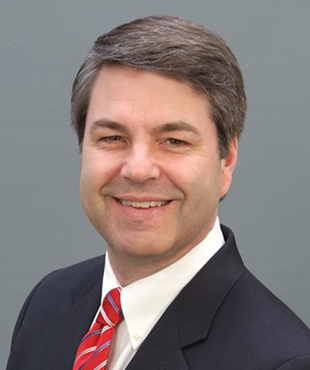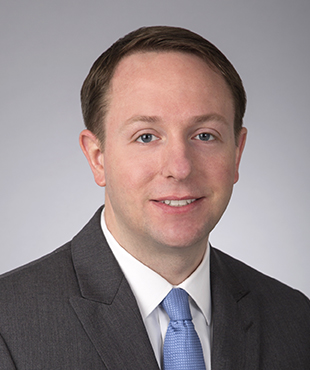

By Mark A. Behrens, co-chair of Shook, Hardy & Bacon L.L.P.’s Washington, D.C.-based Public Policy Group and a member of Washington Legal Foundation’s Legal Policy Advisory Board; and Christopher E. Appel, Of Counsel in the firm’s Public Policy Group.
* * * *
A fundamental tenet of legal ethics rules starting with the Canons of Professional Ethics in 1908 through the current Model Rules of Professional Conduct (Model Rule 5.4) is that lawyers and law firms must exercise professional independence. A 2022 DRI Center for Law & Public Policy Report explains, “Lawyers have been prohibited from allowing investment in their businesses by nonlawyers on the premise that the client will be adversely impacted if the lawyer is influenced by the economic interest of the investors.”1
For years, American Bar Association (ABA) commissions have studied regulatory innovations to improve the accessibility, affordability, and quality of civil legal services, but no changes have been adopted to longstanding ABA policy prohibiting nonlawyer ownership of law firms.
Recently, however, advocates for alternative business structures (ABS) for law firms have had some success in states. In 2020, the Arizona Supreme Court abolished that state’s version of Model Rule 5.4, instituting a licensing system that permits nonlawyers to have an economic interest in law firms.2 The Utah Supreme Court authorized a regulatory sandbox pilot program to allow nonlawyer ownership of law firms for at least seven years (starting September 1, 2020).3 The District of Columbia has permitted a limited form of nonlawyer ownership of law firms since 1991.4
This year, momentum shifted back to maintaining the traditional model of a law firm owned and operated exclusively by attorneys. The Florida Supreme Court, ABA House of Delegates, and California Legislature each reaffirmed attorney ownership and control of the practice of law. These events may foreshadow movement away from ABS proposals for law firms in other jurisdictions.
Florida Supreme Court Rejects ABS Proposals
In March, Florida’s high court declined to proceed with proposals by a Special Committee to test nonlawyer ownership in law firms, fee splitting with nonlawyers, and broadly expanded paralegal work.5 The proposals were modeled after Utah’s regulatory sandbox pilot program.6
The Florida Bar’s Board of Governors had urged the Florida Supreme Court not to adopt the Special Committee’s proposals to allow nonlawyer ownership in law firms or fee sharing with nonlawyers.7 The Board unanimously rejected these proposals. In a letter to the court, the Board said members “expressed concern” that allowing nonlawyers to own interests in law firms would create “an inherent conflict of interest between lawyer-owners of firms, who must adhere to ethical obligations and advance principles of public service, and unregulated nonlawyer-owners, whose primary goal would be to increase firm profitability.”8 The Board added, “these changes would be so profoundly transformative of the practice of law in Florida that they should not be allowed, even on a test basis, without clear and compelling empirical data that they will help solve access to justice in a meaningful way with little or no risk to the public.”9
The Board of Governors also told the Florida Supreme Court that data from other states “either fails to show that [changes to law firm ownership and fee sharing rules] will improve access or it shows the negative effects of the changes.”10 “Indeed,” the Board said, “the data from Arizona clearly demonstrates the peril of unintended consequences of allowing nonlawyer firm ownership; witness the efforts by large litigation finance entities to acquire ownership of law firms underway now in Arizona.”11
The Board submitted hundreds of pages of comments from Florida Bar members expressing wide-ranging concerns, including the potential of ABS for law firms to erode the quality of legal services, strain lawyer ethical obligations and accountability, and divide loyalty to clients.12
The Florida Supreme Court has asked the Bar for “alternative proposals to ‘improve the delivery of legal services to Florida’s consumers and . . . assure Florida lawyers play a proper and prominent role in the provision of these services.’”13
ABA Reaffirms “Core Values” of Attorney Owned and Controlled Law Firms
In August, the ABA’s House of Delegates adopted Resolution 402, which states that the “sharing of legal fees with non-lawyers and the ownership or control of the practice of law by non-lawyers are inconsistent with the core values of the legal profession.”15
The report accompanying Resolution 402 offers several reasons why “non-lawyer involvement in the practice of law is such a threat to clients and our system of justice.”16 These include the “threat of outside regulation” that nonlawyer involvement may invite; inability to “assure that the twin pillars of confidentiality and conflicts of interest are observed by the nonlawyer;” “rigorous training in the law” for lawyers but “not so for those outside the profession;” and “competing duties to the client on the one hand, and to the shareholder, on the other.”17
The House of Delegates report refutes the argument by ABS proponents that such proposals will lead to greater access to justice.18 The report notes that in Arizona, “the approved ABSs do not appear to be focused on traditionally underserved practice areas—those areas where the need for access has long been identified as greatest—like domestic relations, small claims, and landlord and tenant.”19 In addition, the report is critical of ABS advocates’ failure to take into account “what some of the proposals have done to other professions, including doctors, without improving access to the consumers.”20
California Blocks Regulatory Sandbox Experiment
A new California law enacted in September halted the activities of state bar working groups that were studying changes to ethics laws to allow nonlawyers to share fees with lawyers or own law firms and allow specially trained nonlawyers called paraprofessionals to provide limited services in areas such as employment or consumer debt.21 Both initiatives are on hold to allow the bar to focus on its core mission of “protecting individuals . . . from unscrupulous actors”22 in the wake of the “bar’s mishandling of allegations involving Tom Girardi—the now-disbarred high profile plaintiffs’ lawyer who is accused by a rival law firm of using client settlement funds to fund a lavish lifestyle. . . .”23
Beginning January 1, 2025, the bar may resume its study of the use of paraprofessionals but must continue to “[e]xclude corporate ownership of law firms and splitting legal fees with nonlawyers” from any regulatory sandbox it explores.24 The new law explains that fee sharing has “historically been banned by common law and statute due to grave concerns that it could undermine consumer protection by creating conflicts of interest that are difficult to overcome and fundamentally infringe on the basic and paramount obligations of attorneys to their clients.”25
Potential Impacts on ABS Efforts in Other States
The combined rejection of ABS proposals for law firms by an influential state supreme court, state legislature, and the nation’s largest voluntary association of lawyers—all within the span of around six months—may discourage other jurisdictions from pursuing ABS for law firms or reconsider existing initiatives regarding nonlawyer ownership of law firms and fee splitting.26 These voices add to the Illinois State Bar Association’s opposition to nonlawyer ownership and investment in law firms27 and the conclusion of a New York working group on regulatory innovation that ABS for law firms “should not be permitted in New York at the present time.”28 Surveys show that “lawyers overwhelmingly oppose nonlawyer ownership.”29
The recent momentum against ABS proposals for law firms should cause state bar leaders and other stakeholders to exercise greater caution before endorsing any form of ABS that permits nonlawyer ownership of law firms or fee sharing with nonlawyers. The concerns raised by lawyers about unwarranted intrusions on attorney independence and impairment of the quality of legal services appear throughout the profession. There also does not appear to be persuasive evidence that nonlawyer involvement improves access to justice in the types of cases where legal services needs may be unmet. Allowing nonlawyer ownership or investment in law firms may simply amplify the existing profit motivations in the practice of law and steer investors toward the most potentially profitable cases.
Notes
- Marta-Ann Schnabel et al., Nonlawyer Investment in the Legal Economy, DRI Ctr. for Law & Pub. Pol’y (2022), at 3.
- Ariz. Code of Jud. Admin. § 7-209 (Oct. 2020); see also Ariz. Jud. Branch, Alternative Business Structures (ABS) Questions and Answers (visited Oct. 9, 2022).
- Utah S. Ct., Office of Legal Services Innovation, Frequently Asked Questions (visited Oct. 9, 2022); see also Utah Work Group on Regulatory Reform, Narrowing the Access-to-Justice Gap by Reimagining Regulation (Aug. 2019).
- DC Bar, Rules of Prof. Conduct, Rule 5.4: Professional Independence of Lawyer (visited Oct. 9, 2022).
- Mark D. Killian, Supreme Court Declines to Adopt Recommendations on Nonlawyer Ownership, Fee Splitting, and Expanded Paralegal Work, Fla. Bar News, Mar. 8, 2022. The court agreed to permit not-for-profit legal service providers to organize as a corporation and allow nonlawyers to be members of not-for-profit legal service providers’ boards of directors. In re: Amendments to Rule Regulating the Florida Bar 4-5.4 (Fla. June 2, 2022).
- John Stewart et al., Final Report of the Special Committee to Improve the Delivery of Legal Services (June 28, 2021).
- Letter from Michael G. Tanner, President, The Florida Bar, to Hon. Charles T. Canady, Chief Justice, Supreme Court of Florida, Dec. 29, 2021, at 2.
- Id. at 3.
- Id. at 10.
- Id.
- Id. at 10.
- Comments on the Final Report of the Special Committee on the Delivery of Legal Services.
- Letter from John A. Tomasino, Clerk of Court for the Florida Supreme Court, to Joshua E. Doyle, Executive Director of the Florida Bar, Mar. 3, 2022, at 2.
- ABA House of Delegates, Resolution 402 (adopted Aug. 8-9,2022) (reaffirming Resolution 00A10F (2000)); see also Sarah Martinson, ABA Reaffirms Policy Against Nonlawyer Firm Ownership, Law360 (Aug. 9, 2022). The House of Delegates sought to reaffirm established ABA policy on nonlawyer involvement to “leave no doubt” that, as state supreme courts and bar associations consider ways to advance the administration of justice, “there should be no changes to Association policy against fees splitting with non-lawyers and non-lawyer ownership of entities delivering legal services.”14 ABA House of Delegates, Report for Resolution 402 (Aug. 2022), at 3-4.
- Id. at 4.
- See id. at 4-5.
- See id. at 2 n.2.
- Id.
- Id. (quoting Florida Bar Board of Governors member Josh Chilson).
- Cal. A.B. 2958 (2022); see also James Mills, Newsom OKs Bill Blocking Bar’s Legal Service Reform Plans, Law360, Sept. 20, 2022.
- Cal. A.B. 2958 (2022).
- Karen Sloan, California Lawmakers Pull Plug on Legal Industry Reforms, Reuters, Aug. 29, 2022.
- Cal. A.B. 2958 (2022).
- Id. The state bar has until January 23, 2023, to provide the legislature with a detailed report on the total of all funding spent since 2018 to study the creation of a regulatory sandbox or the licensing of paraprofessionals.
- In July 2022, the North Carolina State Bar voted to create an Access to Justice Committee to study recommendations by a Regulatory Reform Subcommittee that includes the regulatory sandbox concept. See N.C. Bar Ass’n Utilization Committee, North Carolina Regulatory Reform Update, ncbarblog.com (visited Oct. 9, 2022); see also N.C. State Bar, Issues Subcommittee on Regulatory Change, Report and Recommendations (Jan. 2022). In 2021, the Washington Supreme Court’s Practice of Law Board released a blueprint for a regulatory sandbox. See Washington Courts Practice of Law Board, Blueprint for a Legal Regulatory Sandbox in Washington State (June 2021).
- See Richard L. Thies & John E. Thies, ISBA Leadership Continues Association’s Opposition to Greater Non-Lawyer Involvement in the Delivery of Legal Services, Ill. St. Bar Ass’n, Senior Lawyers (Nov. 2020).
- Commission to Reimagine the Future of New York’s Courts, Report and Recommendations of the Working Group on Regulatory Innovation (Dec. 2020), at 3.
- Stephen Younger, ABA is Defending Profession’s Values from Monied Influences, Law360, Sept. 8, 2022.
